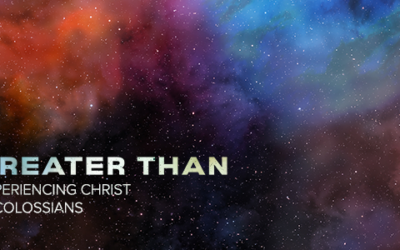Day 2
Lisa Scheffler, author
Listen at bit.ly/EngageGodDaily
One time, when my daughter was an adorable preschooler with a not-so-adorable temper, she threatened to call Social Security on me. She was angry because I wouldn’t let her do something that, in her young mind, was essential to her happiness and well-being. She decided it was time to bring out the big guns. With her hands on her hips and fury in her eyes, she announced, “I’m calling Social Security!”
It doesn’t matter whether we are four or seventy-four, we will sometimes balk at being told what to do, even if it’s for our own good. We’ll lash out if it feels like our freedom is being taken away. From the Garden of Eden to today, people want to go their own way, chart their own course, forge their own destiny — apart from God. That’s what freedom means to them. But what we’re discovering here in Galatians is that true freedom can only come from a life with God.
The concept of freedom is key to Galatians. We won’t grasp the full meaning of this final section of Paul’s letter without it, so it’s important that we get it right. It’s not the way rebellious four year-olds (or seventy-four year-olds) would define freedom.
We’re only covering one verse today, because it’s an important one.
Read
Galatians 5:1
5 It is for freedom that Christ has set us free. Stand firm, then, and do not let yourselves be burdened again by a yoke of slavery.
Reflect
Gordon Fee calls Galatians 5:1 a “Janus” statement. Like the mythological god with two faces, this sentence directs us backwards to Paul’s previous theological argument and forwards to the implications of all he’s been saying. Recall that in chapter 4:21–31, Paul had used the story of Hagar and Sarah to contrast two ways of being: either as the children of slavery or the children of promise. Now, as he is transitioning to the implications of that lineage.
The first part of verse 1 that the NIV translates “it is for freedom that Christ has set us free” is only four words in the Greek: (in order) “freedom” “you” “Christ” “(set) free.” Paul is using simple, direct language to emphasize that these people were finally free. According to commentator Scot McKnight, “Everything we understand in this passage, and ultimately everything we ‘take home’ from Galatians, hinges on our ability to perceive what the term freedom means in this letter.”[1]
Most importantly, “being free” is inextricably tied to relationship with God. It is what we were created for, and we cannot experience freedom apart from the relationship we have with God, by the Spirit and through Christ. Being free means being liberated from our slavery to the law and to sin so we can become the people God created us to be. That’s true freedom!
As McKnight explains, “being free” is first of all, the result of the death of Jesus Christ. Christ’s death redeemed us from the curse of the law (Galatians 2:4 and 3:13). Also, “being free” is “life in the Spirit of God.” As Paul says in 2 Corinthians 3:17, “Now the Lord is the Spirit, and where the Spirit of the Lord is, there is freedom.” These ideas are put together later by Paul in Romans 8:2: “through Christ Jesus the law of the Spirit of life has set me free from the law of sin and death.”[2] “In general,” McKnight concludes, “we might say that ‘being free’ is the liberation of a person’s spirit to do what God wants, to be what God wants, and to enjoy the life God gives us on this earth.”[3]
Contrary to the freedom defined by rebellious humans everywhere, freedom from is at the same time a freedom to. While we are not free to do whatever we want, we are free to live according to the love and goodness of our Father. We are free to choose peace over selfish striving, kindness over disregard, and justice over exploitation. We are set free to do what is right and to be who God designed us to be.
To embrace this concept of freedom, we must stand our ground. As Paul warns, “Stand firm, then, and do not let yourselves be burdened again by a yoke of slavery.” Living free takes effort. It will require us to submit ourselves to the Spirit and die to selfish desires. But putting ourselves back in the shackles of the law or of sin is endless slavery and subjugation. It is a life outside the goodness of God and the reign of King Jesus, and that’s really no life at all.
[1] Scot McKnight, Galatians, The NIV Application Commentary (Grand Rapids, MI: Zondervan Publishing House, 1995), 244.
[2] McKnight, 244.
[3] McKnight, 245.
Respond
Is the freedom Paul is talking about in Galatians the way you are used to thinking about freedom? Why or why not?
Meditate on the first part of Galatians 5:1, “It is for freedom that Christ has set us free.” What about your freedom in Christ causes you to rejoice? Spend some time praising the Father.


